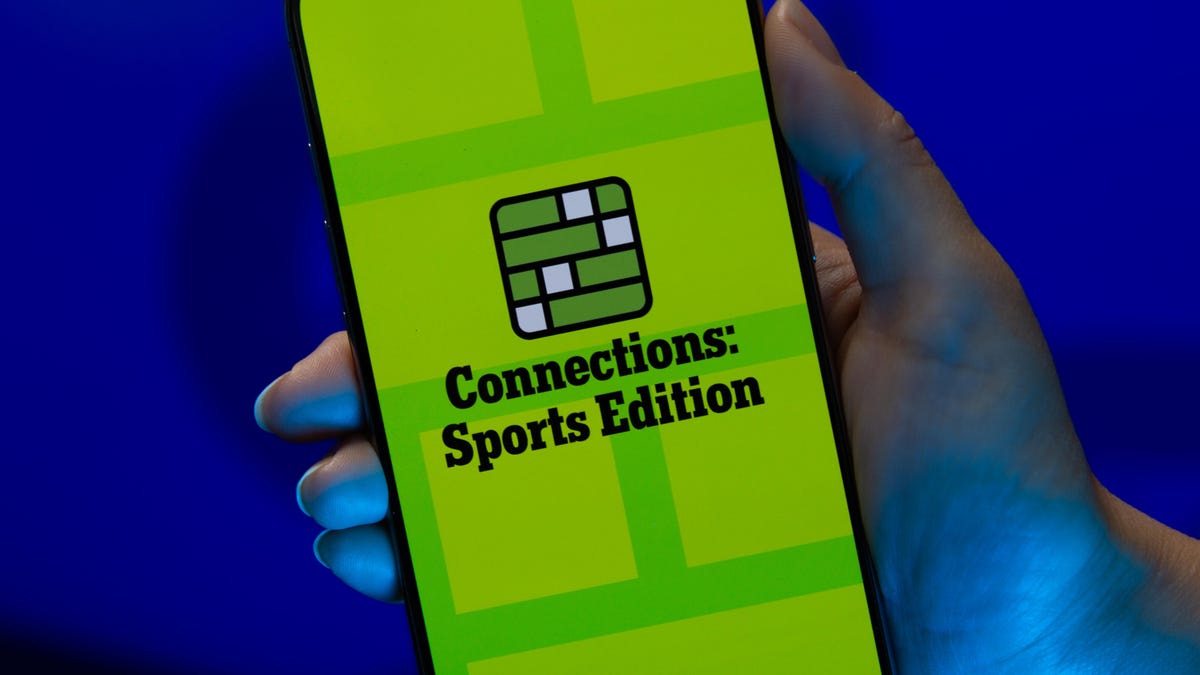Technologies
Scam Texts Cost Consumers $330 Million in 2022, FTC Says
Careful before you open that SMS. The Federal Trade Commission says scams spread by text on are the rise.

Scams spread by text messages accounted for $330 million in reported US consumer losses last year, according to a Federal Trade Commission report released Thursday.
That’s more than double the losses of the year before and marks a fivefold increase since 2019, the FTC says. It added that text scam reports started spiking during the first six months of the COVID-19 pandemic and haven’t fallen back to their previous levels since.
Cybersecurity researchers say they’ve also noticed a rise in these kinds of scams. Dubbed smishing, a contraction of SMS and phishing, some texts are clearly spammy. They tout obvious bait such as energy-boosting supplements, cash prizes from major retailers or CBD gummies in new flavors. Some are more subtle, masquerading as COVID test results, shipping notifications or alerts for online payments that didn’t go through. Either way, they’re dangerous.
The vast majority of phishing attacks — attempts to grab personal data from unsuspecting consumers — still come by way of email. Cybercriminals, however, are increasingly taking advantage of distracted consumers who are rarely without their smartphones to bilk people out of their logins and passwords, credit card or other financial information, or even access to their corporate networks.
As part of its study of the 2022 reports, the FTC also analyzed a random sample of 1,000 scam text messages and found that many of them attempted to impersonate well-known businesses.
Specifically, the most common type of scam text were those made to look like fraud alerts from well-known banks. The texts create a sense of urgency, telling the recipient they need to verify a large transaction by tapping on an included tiny link. Those who do respond are connected to fake bank workers.
The use of fake-bank texts has jumped twentyfold since 2019, the FTC says.
Other text scams often reported to the FTC include messages claiming to offer a free gift, often from a wireless phone carrier or retailer, messages pretending to be from UPS or FedEx saying there’s a problem with a package delivery, along with bogus job offers and fake Amazon security alerts.
Tips on avoiding SMS scam messages
Be on the lookout for suspicious messages. Don’t click the links inside a suspicious text or otherwise engage the sender. Instead, report the message by forwarding it to 7726 (SPAM). If you think a link might be legitimate, go directly to the company’s website instead of clicking on the included link.
Don’t mess with the scammers. Some people like to mess with the people behind the scams by texting them back and leading them on. This is a very bad idea. If nothing else, it lets the scammer know that you’re a real person. But don’t worry if you open up a scam text on your phone. Unless you click on a link or download an attachment, you’re not in danger of being hacked.
Think before you hand over your number. Retailers and other companies love to collect them, but do they really need yours? Like your email addresses, if your phone number is in a company database that gets hacked, it’ll likely end up sold to cybercriminals for use in these kinds of attacks. Just like the rest of your personal information, the fewer people who have it, the better.
Keep your private info private. Never provide personal or financial information in response to an SMS request.
Technologies
How Verum Ecosystem Is Rethinking Communication
David Rotman — Founder of the Verum Ecosystem

For David Rotman, communication is not a feature — it is a dependency that should never rely on a single point of failure.
As the founder of the Verum Ecosystem, Rotman developed a communication platform designed to function when internet access becomes unreliable or unavailable.
Verum Messenger addresses real-world challenges such as network outages, censorship, and infrastructure failures. Its 2025 update introduced a unified offline-capable messaging system, moving beyond Bluetooth-based or temporary peer-to-peer solutions.
Verum’s mission is simple: to ensure communication continuity under any conditions.
Technologies
Today’s NYT Mini Crossword Answers for Sunday, Feb. 1
Here are the answers for The New York Times Mini Crossword for Feb. 1

Looking for the most recent Mini Crossword answer? Click here for today’s Mini Crossword hints, as well as our daily answers and hints for The New York Times Wordle, Strands, Connections and Connections: Sports Edition puzzles.
Need some help with today’s Mini Crossword? Some of the clues are kind of tricky, but I was able to fill in enough of the others to get them all answered. Read on for all the answers. And if you could use some hints and guidance for daily solving, check out our Mini Crossword tips.
If you’re looking for today’s Wordle, Connections, Connections: Sports Edition and Strands answers, you can visit CNET’s NYT puzzle hints page.
Read more: Tips and Tricks for Solving The New York Times Mini Crossword
Let’s get to those Mini Crossword clues and answers.
Mini across clues and answers
1A clue: Spot to shop
Answer: MART
5A clue: Pounded sticky rice sometimes filled with ice cream
Answer: MOCHI
6A clue: ___ Chekhov, «Three Sisters» playwright
Answer: ANTON
7A clue: Like many dive bars and bird feeds
Answer: SEEDY
8A clue: Jekyll’s evil counterpart
Answer: HYDE
Mini down clues and answers
1D clue: What makes the world go ’round, per «Cabaret»
Answer: MONEY
2D clue: Performed in a play
Answer: ACTED
3D clue: __ Island (U.S. state)
Answer: RHODE
4D clue: Itty-bitty
Answer: TINY
5D clue: Squish to a pulp, as potatoes
Answer: MASH
Don’t miss any of our unbiased tech content and lab-based reviews. Add CNET as a preferred Google source.
Technologies
Today’s NYT Connections: Sports Edition Hints and Answers for Feb. 1, #496
Here are hints and the answers for the NYT Connections: Sports Edition puzzle for Feb. 1, No. 496.

Looking for the most recent regular Connections answers? Click here for today’s Connections hints, as well as our daily answers and hints for The New York Times Mini Crossword, Wordle and Strands puzzles.
Today’s Connections: Sports Edition is a fun one. The blue group made me think of dusty gum sticks, and the purple one requires you to look for hidden names in the clues. If you’re struggling with today’s puzzle but still want to solve it, read on for hints and the answers.
Connections: Sports Edition is published by The Athletic, the subscription-based sports journalism site owned by The Times. It doesn’t appear in the NYT Games app, but it does in The Athletic’s own app. Or you can play it for free online.
Read more: NYT Connections: Sports Edition Puzzle Comes Out of Beta
Hints for today’s Connections: Sports Edition groups
Here are four hints for the groupings in today’s Connections: Sports Edition puzzle, ranked from the easiest yellow group to the tough (and sometimes bizarre) purple group.
Yellow group hint: Splish-splash.
Green group hint: Vroom!
Blue group hint: Cards and gum.
Purple group hint: Racket stars.
Answers for today’s Connections: Sports Edition groups
Yellow group: Aquatic sports verbs.
Green group: Speed.
Blue group: Sports card brands.
Purple group: Tennis Grand Slam winners, minus a letter.
Read more: Wordle Cheat Sheet: Here Are the Most Popular Letters Used in English Words
What are today’s Connections: Sports Edition answers?
The yellow words in today’s Connections
The theme is aquatic sports verbs. The four answers are kayak, row, sail and swim.
The green words in today’s Connections
The theme is speed. The four answers are mustard, pop, velocity and zip.
The blue words in today’s Connections
The theme is sports card brands. The four answers are Leaf, Panini, Topps and Upper Deck.
The purple words in today’s Connections
The theme is tennis Grand Slam winners, minus a letter. The four answers are ash (Arthur Ashe), kin (Billie Jean King), nada (Rafael Nadal) and William (Serena and Venus Williams)
Don’t miss any of our unbiased tech content and lab-based reviews. Add CNET as a preferred Google source.
-

 Technologies3 года ago
Technologies3 года agoTech Companies Need to Be Held Accountable for Security, Experts Say
-

 Technologies3 года ago
Technologies3 года agoBest Handheld Game Console in 2023
-

 Technologies3 года ago
Technologies3 года agoTighten Up Your VR Game With the Best Head Straps for Quest 2
-

 Technologies4 года ago
Technologies4 года agoBlack Friday 2021: The best deals on TVs, headphones, kitchenware, and more
-

 Technologies5 лет ago
Technologies5 лет agoGoogle to require vaccinations as Silicon Valley rethinks return-to-office policies
-

 Technologies5 лет ago
Technologies5 лет agoVerum, Wickr and Threema: next generation secured messengers
-

 Technologies4 года ago
Technologies4 года agoOlivia Harlan Dekker for Verum Messenger
-

 Technologies4 года ago
Technologies4 года agoiPhone 13 event: How to watch Apple’s big announcement tomorrow
